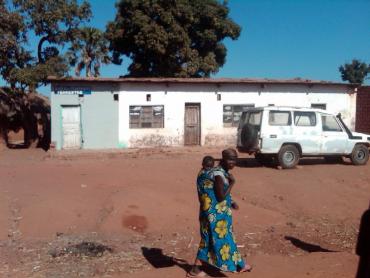Torture, summary execution and other human rights abuses in Kilwa, DRC
In October 2004 the Congolese military made use of Anvil Mining Limited’s logistic and personnel in a counter-offensive to crush insurgents in the town of Kilwa. Kilwa is located in the Katanga Province, 50 km from the Dikulushi copper/silver mine, then owned by Anvil.
The Anvil-Kilwa case was under the spotlight at the Third UN Forum on Business and Human Rights in Geneva in December 2014. The key theme of this Forum was access to effective remedy. At the opening session, the new UN High Commissioner for Human Rights, Zeid Ra’ad Al Hussein, referred to the Kilwa massacre and made a special reference to Dickay Kunda, a representative of the Kilwa victims, who had been invited by the UN to speak on a panel about access to justice. The High Commissioner stressed the important contribution of Mr Kunda and other participants in bringing about a ‘new awareness of the responsibility of business to uphold human rights.’
A brief description of the survivors’ ten-year quest for justice was prepared by RAID for the Forum. The document includes the most comprehensive list compiled so far of those that were killed.
What happened?
In October 2004 the Congolese military crushed a small uprising in Kilwa, a town in Katanga Province, DRC. Immediately after the town was recaptured, the military went on the rampage, looting shops and houses and extorting money from, detaining, torturing, raping, and killing civilians. Over the next day or two, around 100 people were killed, including tens of dozens in summary executions, and others died in the following months and years from their injuries. According to an investigation by the United Nations Organization Mission in the DRC and Bill Turner, then CEO of mining company Anvil Mining Limited, the Canadian/Australian company provided:
- logistical support;
- air transport bringing 80-100 troops into the area for the operation and detainees out afterwards; and
- trucks and drivers to move soldiers into Kilwa.
These, according to the local military commander, were instrumental in making the operation possible. Eyewitnesses report that Anvil vehicles, driven by Anvil personnel, were also used for removing looted goods and taking people to be executed at nearby Nsensele.
The Dikulushi copper and silver mine, some 50km away from Kilwa, was owned by Anvil Mining Limited and was the reason for the company’s presence in the area. The mining concession was granted during the Congolese conflict (1997 – 2005), and bypassed the usual negotiations with Gécamines, the DRC’s state-owned mining company. Ore from the open pit mine was transported through port facilities built by Anvil at Kilwa, then carried by barge from the DRC across Lake Mweru to Zambia, transported by truck through Zambia, and processed in South Africa and Namibia. If the ore could not go through Kilwa, the Dikulushi mine would be paralysed as there were no other means of getting it out – no other passable roads, no railway.
Media coverage generated international outrage
On 6 June 2005 Four Corners, Australia’s flagship current affairs programme, broadcast a report on the Kilwa incident. View
The global search for justice
In 2006, after two years of intense pressure led by RAID and Congolese NGO Action contre l’impunité pour les droits humains, a Congolese military prosecutor recommended that nine military personnel and three former Anvil Mining employees be tried for alleged war crimes or complicity in war crimes. The trial lasted six months but political interference put paid to a fair outcome and all the defendants were acquitted.
In November 2010 families of the Congolese victims filed a class action against Anvil Mining in Canada, accusing the company of involvement in the atrocities through having provided logistical support to the Congolese army. The case was brought before the court by the Canadian Association against Impunity (CAAI), an organization representing survivors and families of victims of the 2004 Kilwa massacre. In April 2011, Justice Benoit Emery of the Quebec Superior Court ruled the case could proceed to the class certification stage. However, the Quebec Court of Appeal, despite stating sympathy for the obstacles faced by the victims in seeking justice, overturned the earlier Court’s decision on jurisdiction.
Neither Canadian Court considered the facts of the case and the decision to dismiss leave to appeal therefore does not clear Anvil Mining on the facts.
RAID continues to pursue justice for the victims and survivors of the Kilwa massacre of 2004.

